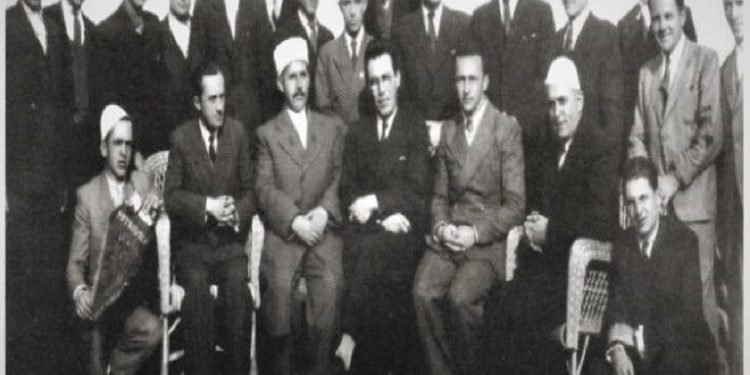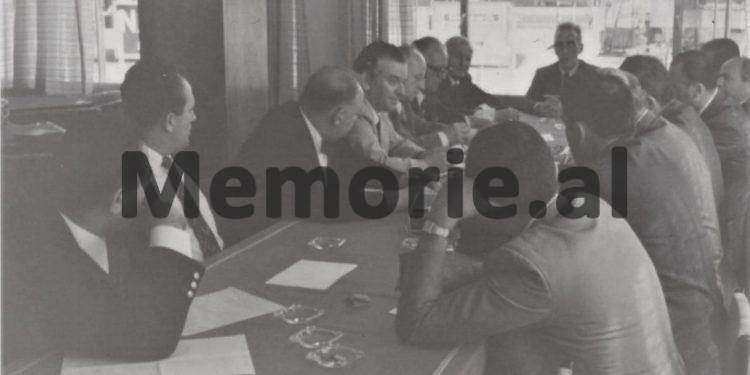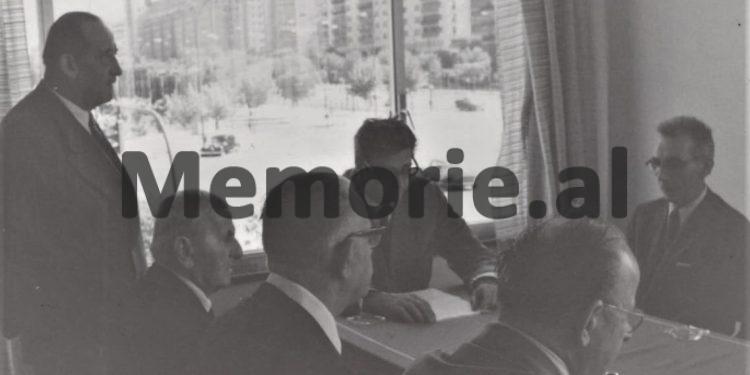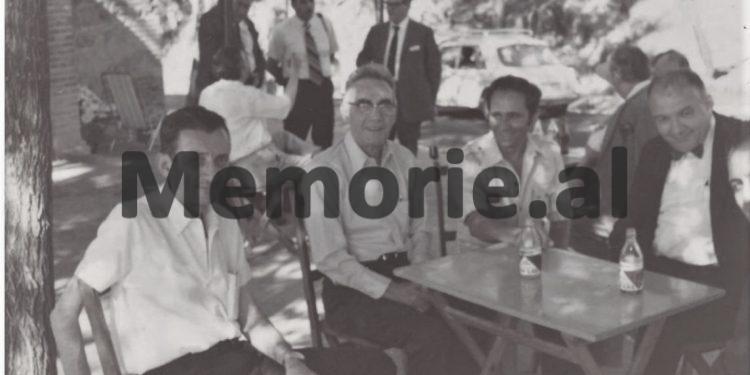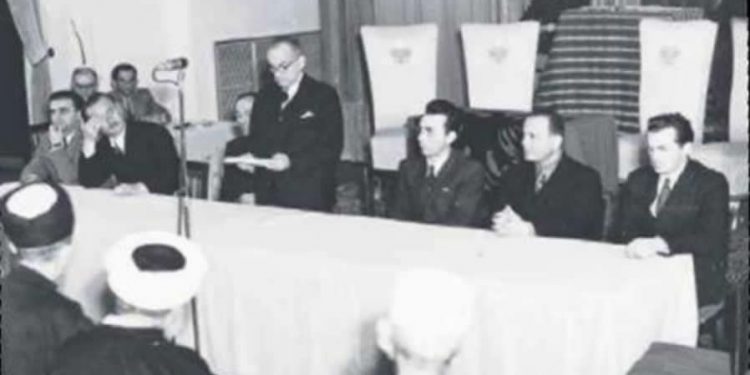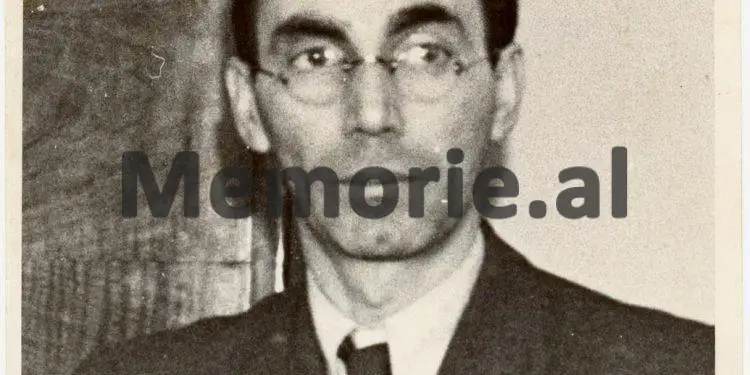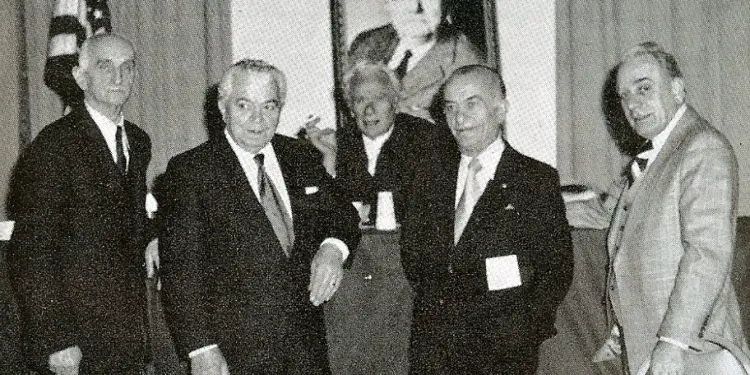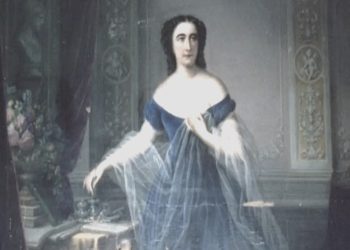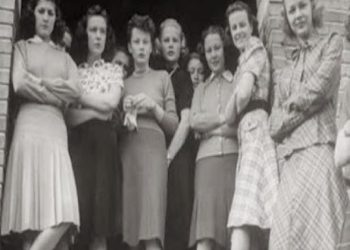By Idriz Lamaj
Part fifteen
From the works of the apostles of ethnic Albania
Xhafer Deva
In light of his own letters and other diaspora revelations
Preface
Memorie.al/ Probably like many others, I often browse letters with my friends and associates, who are no longer in this life. Browsing through them, for a moment unfolds memories that it seems to me that some of them can serve our history. Then, I return to the awareness of the current difficult situation in the ethnic homeland, caused by the quadruple of Albanian politics, I say to myself: “What can my memories of others or the letters of the people of dead? ”
Without being the ominous instigator of pessimism, thinking as always of a better future, I return to my obligations to my friends, and as an icy observer of time, without any claim of historical service, when I am given the opportunity of publication, write what I have in mind, always based on their writings and letters. This principle is also followed in this book about Xhafer Deva. I knew Xhafer Deva in person; we exchanged visits and had a strong correspondence.
I spent days off at his house and inherited all of Xhafer Deva’s correspondence with Rexhep Krasniqi, his closest friend, for more than 40 years. After many years, I talked on the phone with Mrs. Deva’s daughter and son-in-law. In the conversation going on, taking advantage of the old friendship, I asked about his letters and they informed me that it was all Qefali Hamdia, a friend of their family.
In June of last year (2001) I went to Kenosha, Wisconsin, a guest of Qefali Hamdia, to look at Xhafer Deva’s correspondence, which Mrs. Deva sent her years ago, when she, due to her advanced age, was closed his house to go to the house of his 5th daughter and son-in-law, Mrs. Burgl Dagmar and Rev. Dennis Logie.
After reading the bulk of the letters, in the languages I knew, I took with me more than a thousand pages of his correspondence, covering a period of over 30 years, 1945 – 1978. Xhafer Deva spoke and wrote seven – eight languages. His correspondence is: Albanian, English, German, Italian, French, Turkish and Serbian. Xhafer Deva’s letters and writings, with the exception of those in Old Turkish and Serbian in Cyrillic, are mostly typewritten, well-kept, and alphabetically arranged, with the persons he dealt with.
That includes his family letters. He carefully kept a copy of every letter he sent and every letter he received. Mrs. Oswalda Deva, daughter Burgl, son-in-law Dennis Logie and Mr. Qefali Hamdia with family, expressed his heartfelt thanks for the trust they gave me. With special gratitude I recall here the help given to me by my brothers – Captain Nue Gjomarkaj and Nikol Gjomarkaj, in the preparation of one of the most important chapters of this book.
Kapidan Nou, in addition to making available the subject on Xhafer Deva’s relations with the ‘Independent National Bloc’ and sending paratroopers to Albania and Kosovo, reviewed with me each document of that period, and we formulated the text in the form of a conversation; while Nicholas, deciphered the letters, transcribed and translated from Italian, the unpublished materials to date, which were published in this chapter.
Continues from the last number
Xhafer Deva’s life and activity in exile
– Kosovo in the time of Ethnic Albania –
Xhafer Deva in the light of his own letters
Xhafer Deva’s relations with the ‘Independent National Bloc’ and their parachute missions in Albania and Kosovo
As for the position of Sheh Hasani and the intention to move him to our side, it has resulted in a favorable opportunity, due to an unexpected event after my departure from Istanbul and the assertion of Hajredin Vuciterni has been confirmed. Sheh Hasani, in addition to Hajredin Vuititrn, also helped another trusted man he met in Istanbul, named Nexhip Musa, to travel to Turkey with a regular Yugoslav passport, where he has a brother – a Turkish major. Nexhip Musa, was sentenced to death in 1945 and hid in the mountains until 1950, when he was wounded. Due to the wound he was forced to seek the intervention of Sheh Hasani. Sheh Hasani saw him in the place where he was hiding and two days later he appeared again in person and handed him over to the UDB.
Nexhip Musa spent three years in various hospitals and camps and in early 1953, was released. This intervention of Sheh Hasani, who is known and denounced throughout Kosovo as a dangerous agent of the UDB, makes us believe that he is related to someone in Turkey. This remains to be traced very carefully. Istanbul, 14.10.1953
At the end of the report, Xhafer Deva gives details about the expenses incurred in connection with his trip to Istanbul, starting from the cost of the plane ticket and up to all other expenses, except those for accommodation. Deva instructs the US office in Rome with this note at the end of the report:
Clarification: 1. Expenses incurred in Istanbul in the amount of 524 Turkish lira, should be divided in such a way as to understand that the costs of accommodation were not necessary, but special expenses should be taken into account for meetings with persons entered from Yugoslavia. An average of approximately 23.50 Turkish liras per day.
Amount of $ 200 for Informant K. on 10.9. must be registered as a prepayment for K. 2. 3. Regarding the amount of 30.700 – registered as Balance (balance), a special account will additionally follow ”.
After the organizational report, Xhafer Deva gives details about the political information in Yugoslavia in general, and the situation of the Albanians in Macedonia and Kosovo in particular. Macedonia: Systematic and legal cleansing of the Albanian (Muslim) element from the area of Macedonia. On the basis of a state decree of the Federal Republic of Macedonia, with the approval of the central government of Belgrade, as well as a bilateral state agreement with Turkey, any Yugoslav citizen of the Federal Republic of Macedonia with “Turkish nationality” can request emigration for in Turkey, having previously submitted a certificate to the local council (local government) for the loss of possessions.
Based on the above-mentioned certificate, which is given to the interested party in two copies, “Muslims” may request emigration. The applicant is offered a very quick handling of the case, where all the usual formalities are overcome, so the applicant has an immigration passport in his bag within a few days. The Turkish Consulate in Skopje issues – also without any difficulty – entry visas. With this, any “Muslim” living in Macedonia who declares in writing his “Turkish” nationality can immigrate to Turkey.
This Belgrade measure aims at two objectives:
Through the peaceful displacement of large parts of the Albanian element from this delicate area (from the population count by the Tito regime, approximately 200,000 Albanians and 45 thousand Turks) to the border areas of Tetovo, Gostivar, Kicevo, Struga and Ohrid, which represent the absolute majority , at least minority ratios will be achieved. Consequently, the claims of the Albanians for these border areas would be avoided and the Slavic character would be preserved. b. Through this measure, the Belgrade government wins the sympathy not only of the Macedonians but of all the Yugoslav and Pan-Slavic peoples, a measure which is imposed by the rulers of Moscow, but even more than that, it is in line with the Pan-Slavic line.
The adjustment of these “facilities” for the Albanian population is unfortunate because Albanians are paying high the price of freedom from Slavo-Communist terror, leaving their millennial lands and choosing for their new homeland the Turkish steppes. Authoritarian spheres in Ankara rub their hands in joy for a good enterprise (shopping), because they have found working, productive and unpretentious elements for their steppes, while forgetting that the same fate, sooner or later, can to meet them, even worse. “The report on Kosovo clearly shows that all political and administrative leadership is in the hands of Serbs, Montenegrins and Bosniaks.
The report also states that three to five percent are Albanians, of course reliable people of the UDB. After listing the leading staff of all areas of political, economic and state life in Kosovo, Xhafer Deva cites as an example his hometown, Mitrovica: “All segments of life in the district of Mitrovica are led by these persons: Mayor, Mija Cvetic (Serbian) Secretary Mustafa Osmanovi ((Bosnian). Then continue the deputy directors, councilors, the municipal council and the UDB. Rade Vuksanovi ((Serb), Qazim Bajgora (Albanian), Misha Mirkovi ((Serb) and meanwhile director of the Trepça mine), Predrag Mikovi ((Serb), Blazho Lutica, Milija Kovaçevi ((Serb), Milan Petruiqi ((Serb), Hysen Prekazi (Albanian).
Head of the Department of Internal Affairs: Rasim Çerkez (Bosnian) and the names of the Municipal Council continue, listing six Serb-Montenegrins and two Albanians. “The UDB in Mitrovica is led by Chief Aleksa Vucinic with his staff, officers with ranks, all Serb-Montenegrins and two Albanian agents: Jusuf Abdullahi and Musa Batalli from Gjakova.” The report also includes Deva’s talks with the Turkish colonel. Timur Bey Conversation with Mr. Xhelal Koral’s Deputy:
On August 28, 1953, I had a long conversation with Mr. Xhelal Koral’s deputy, Colonel Timur Bey, since Xh.K. due to the worsening of his kidney disease he had set off for Germany. To my question regarding the installation of a Peiler center (i.e. that carries out conspiratorial activities) in Istanbul, due to the immediate changes in the situation, Timur Bey could not give any explanatory and concise answer.
He expressed confidence that the circumstances were unknown to him and that the whole matter as a whole was alarming. He still stands by the view that the installation of this center would be quite significant and very beneficial for both parties. But my comment that the motives for this decision by Ankara should be of a political nature, he asked me to openly explain my opinion on this matter and to make insinuations about the assistance pact between the three Balkan states on the one hand and the very relations tense between Italy and Yugoslavia on the other hand. At this point Timur Bey limited himself to expressing his personal opinion and refused to give a compelling reason for it.
He assured me that Jalal Bey, too, was not informed of the above, but as a man who thinks logically, he believed, that it was not the occasion to sever our relations even in the field of information exchange. Following the discussion on this point, I could make him a comment about the Americans, which means that they do not want to set up a representative service office in Turkey. That’s true – he said -; I may recall that the Americans refused us the installation of such a similar office, but as it were, he did not know the real reason for us. Then we passed our discussion to the Yugoslavs and their activity in the technical-economic sphere which they have developed in Turkey.
I said that it is incomprehensible that the Yugoslavs, next to the Germans, the Americans, the Dutch and the Italians, are the cheapest in everything (in terms of cost). I brought accurate data on the work that the Yugoslavs have done in Turkey and I also pointed out the dangers that may come from this. The Yugoslav competition is constantly increasing evident, in ports, bridges and road constructions, telephone networks, etc., etc., and these are very important strategic constructions. And these works that are done in Turkey, not by Yugoslav firms, but by the Yugoslav state. It has been almost five years since Tito has acted deftly and so far there is ample evidence of a double play. Eventually Timur Bey told me that he himself was from the Caucasus and knew the Yugoslavs well and added that he was quite skeptical because among the many “engineers” and “specialists”, specialists in other fields in that country were also engaged.
He said that “a hasty conclusion would not be helpful” although my arguments were undisputed. Xhafer Deva had frequent meetings with various Turkish personalities where he had many friends. He made persistent efforts to stop the mass displacement near the Turkish authorities. In meetings at various levels, he repeatedly raised the issue that the evacuation of Albanians, Bosniaks and 134 Turks from their lands is to the detriment of Turkey’s interests in the Balkans and Europe. , Deva bluntly says: “You are undermining your country’s centuries – old strategy in the Balkans and in Europe. Where will you base your political strategy tomorrow if this element disappears from the Balkans? Bosniaks, Albanians and Turks are the only peoples who provide Turkey with a breath of fresh air in Europe.
These peoples will always be a strong element in blocking pan-Slavism in the Balkans. You should take the historical example of Rome, which persistently and rightly defends the element of Western Christianity in the Balkans. Rome does not put a noose around its neck because it is aware of its subsequent consequences with the Slavic world. “(Paragraph from a short memorandum, submitted to the Turkish Foreign Minister, September 20, 1953).
During the years 1953-1954, Xhafer Deva again made efforts for the integration of the Kosovo issue in the reorganized “Free Albania” Committee. Abaz Ermenit – who did his best to discredit him. to the BBC for South East Europe Mr F. Leon Shepley Head of South European Service, BBC – Bush Hous, Aldwych, London W.C.2.
Dear Sir, The speech given on April 27, 1953, by Tajar Zavalani, under the pseudonym “Iliri”, in commemoration of that unfortunate anniversary of April 7, known in the history of Albania as “Black Friday”, was by no means a Isolated example of a lamentable trend, which we have noticed before in the BBC program in Albanian. I am talking about a policy, dressed almost in an official garb, to cover with gossip, slander and fabrications, some Albanians, who in the past and under different political circumstances, have held government positions and worst of all accuse these Albanians with a host of words as stigmatized criminals. This last speech of Zavalani, with the nickname “Iliri”, contained similar accusations against me, as the former Minister of Interior of Albania, from September 1943 to July 1944.
These accusations are presented in the following words: “The German Nazis experienced this example by creating another group of quislings under the leadership of the infamous Gestapo’s favorite, Xhafer Deva”; “The day of April 7 reminds us strongly of another disgusting and lowly man, Xhafer Deva, the Minister of Internal Affairs under the Nazi occupation; with the help of his assassins, he took the lives of hundreds of nationalists, among whom, “Skënder Muços, and sent thousands of innocent people to Nazi extermination camps.” It is not my intention here to comment on or justify my past political activity. This letter was written as a result of my decision to give the speaker of your Albanian service the opportunity to present evidence to support his allegations, which would be considered by a British court. Memorie.al
The next issue follows




